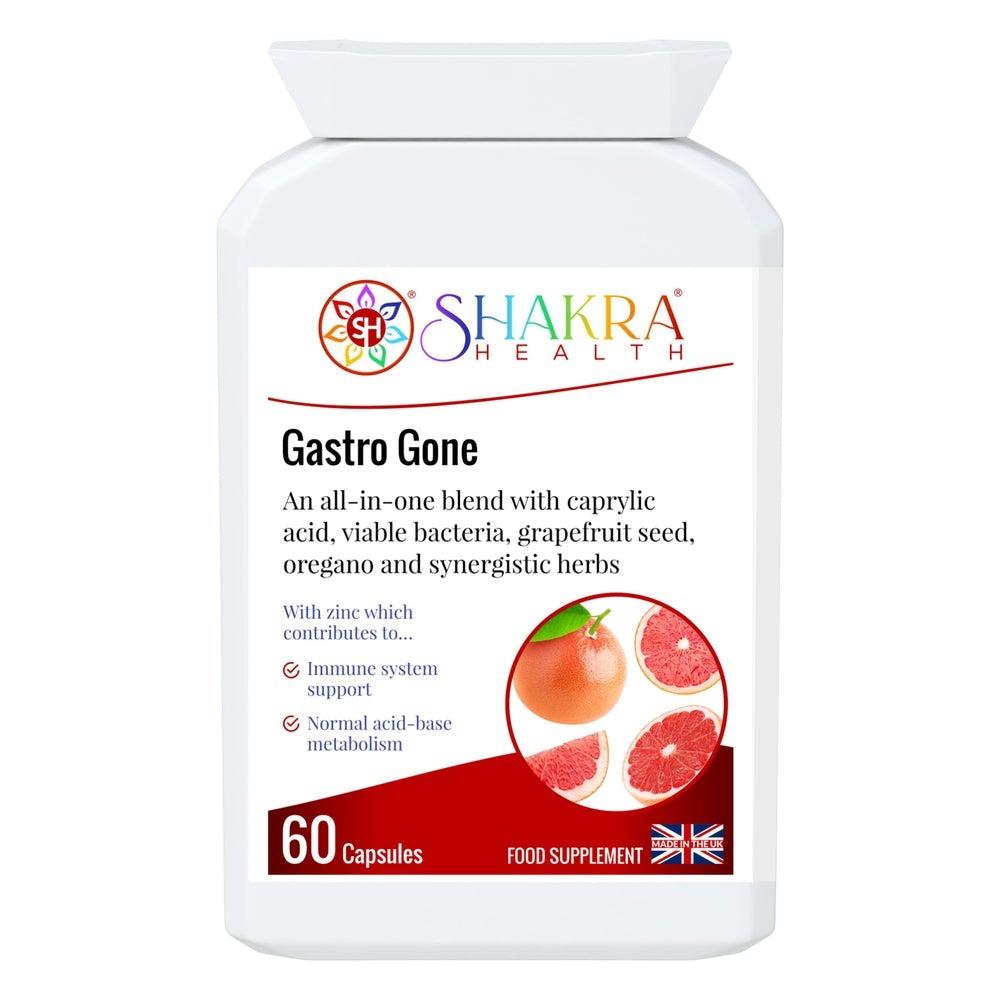
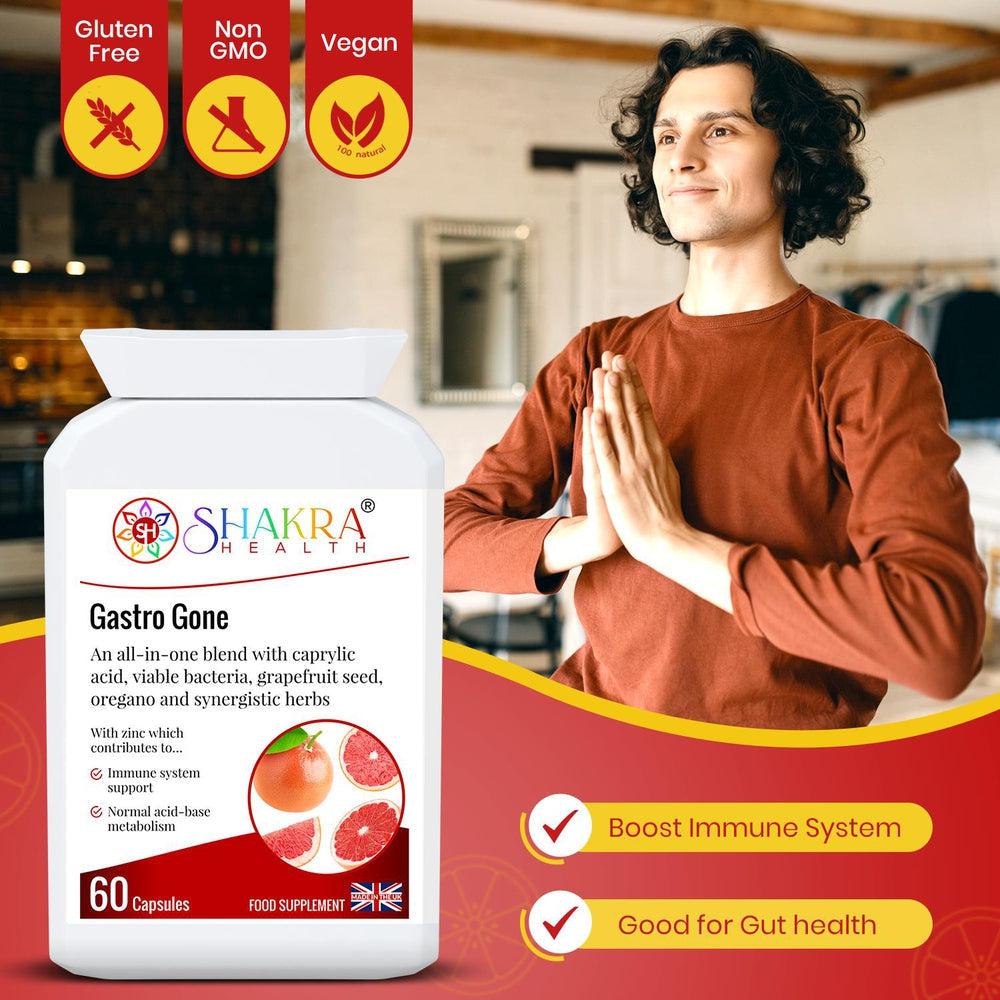
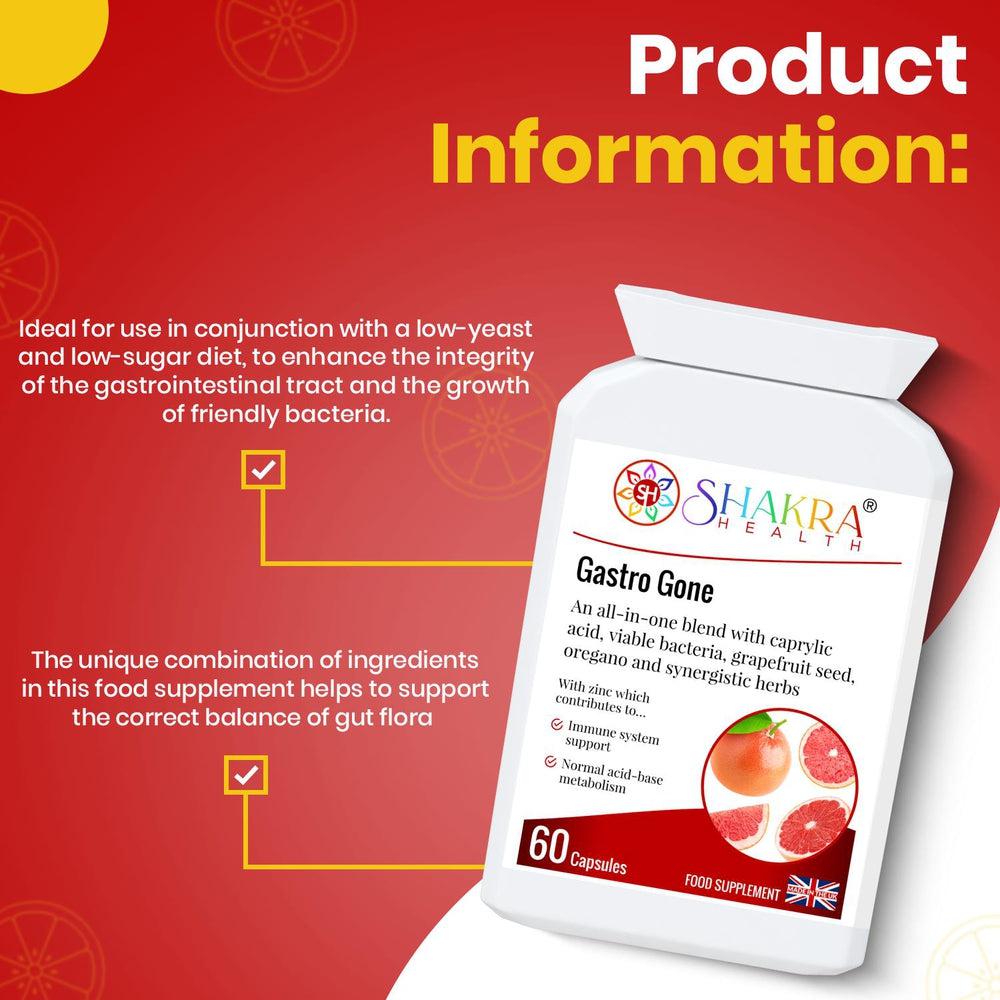
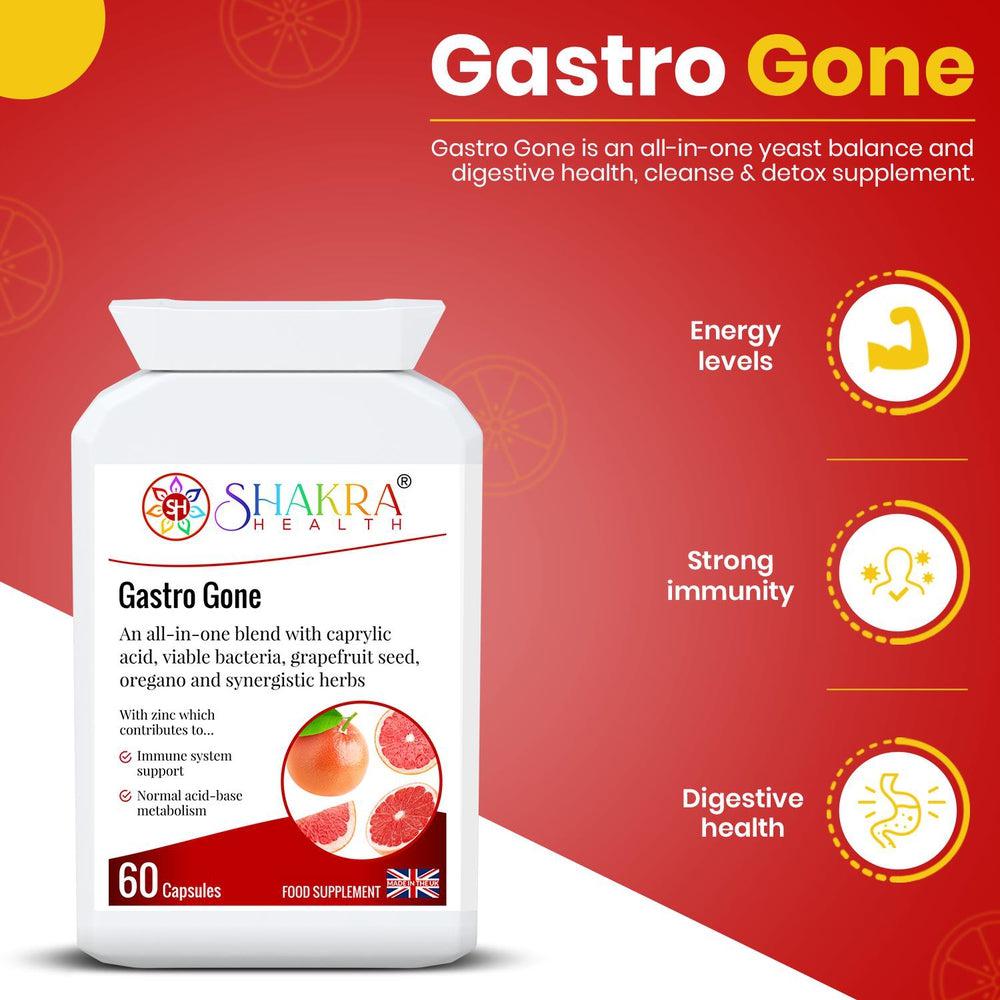
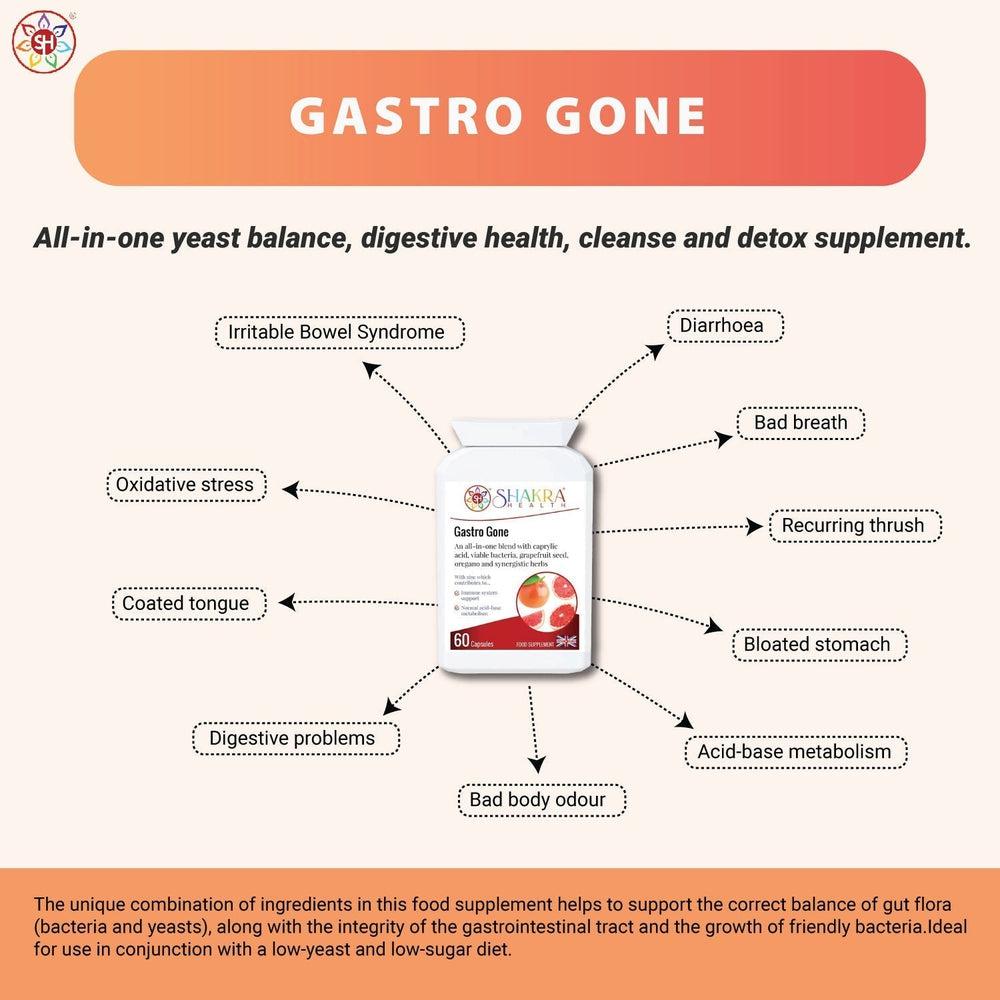
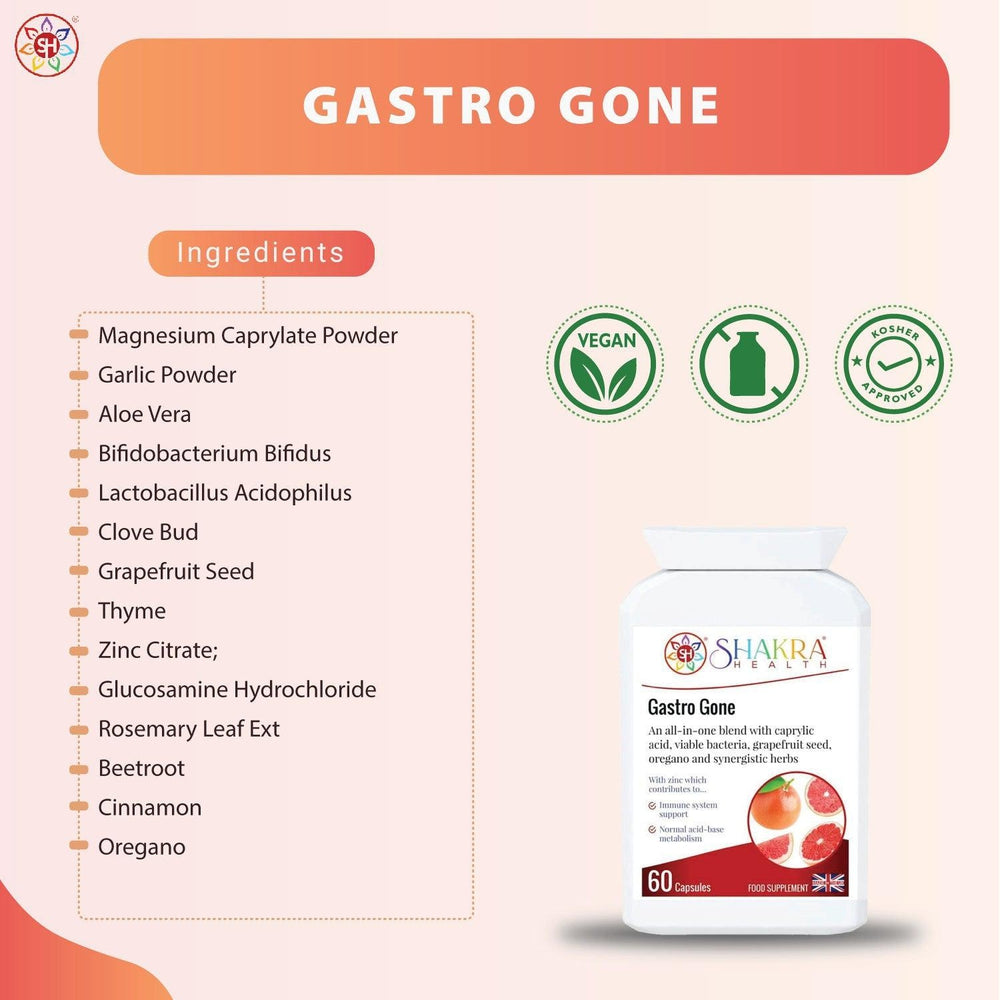
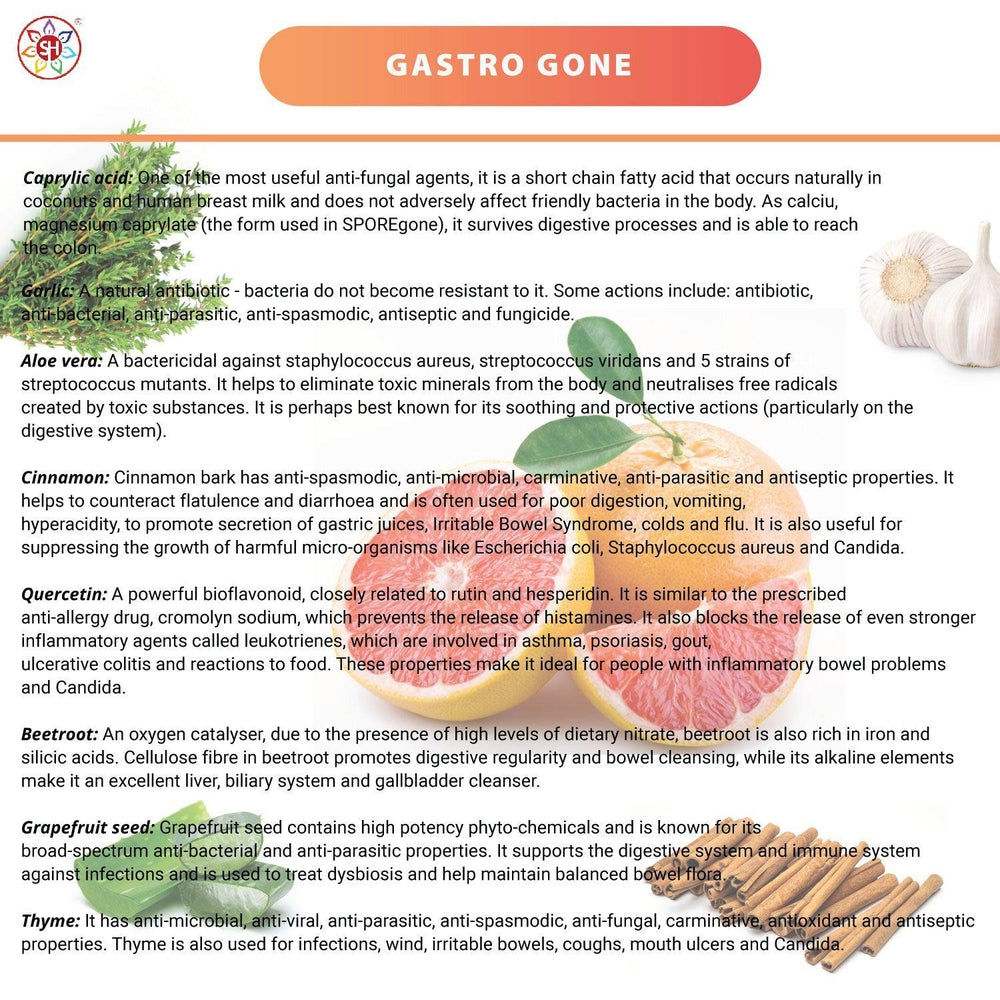
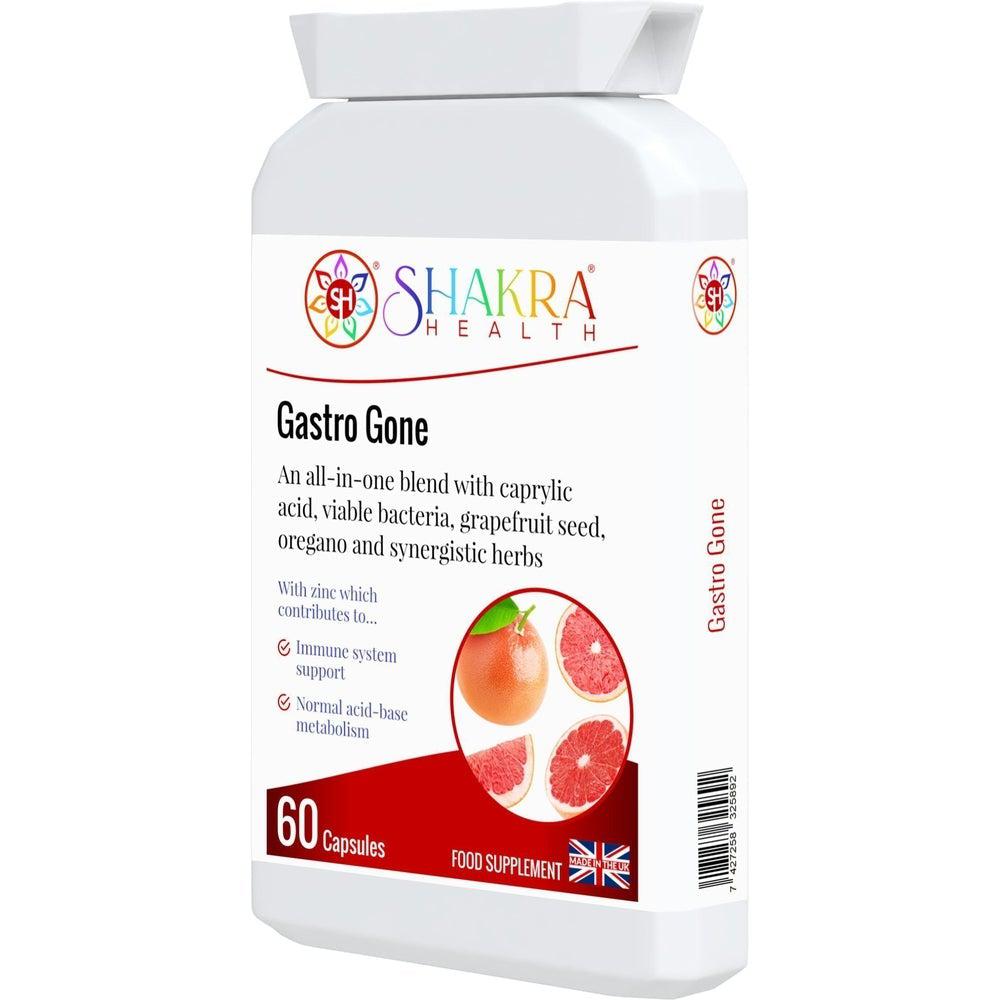
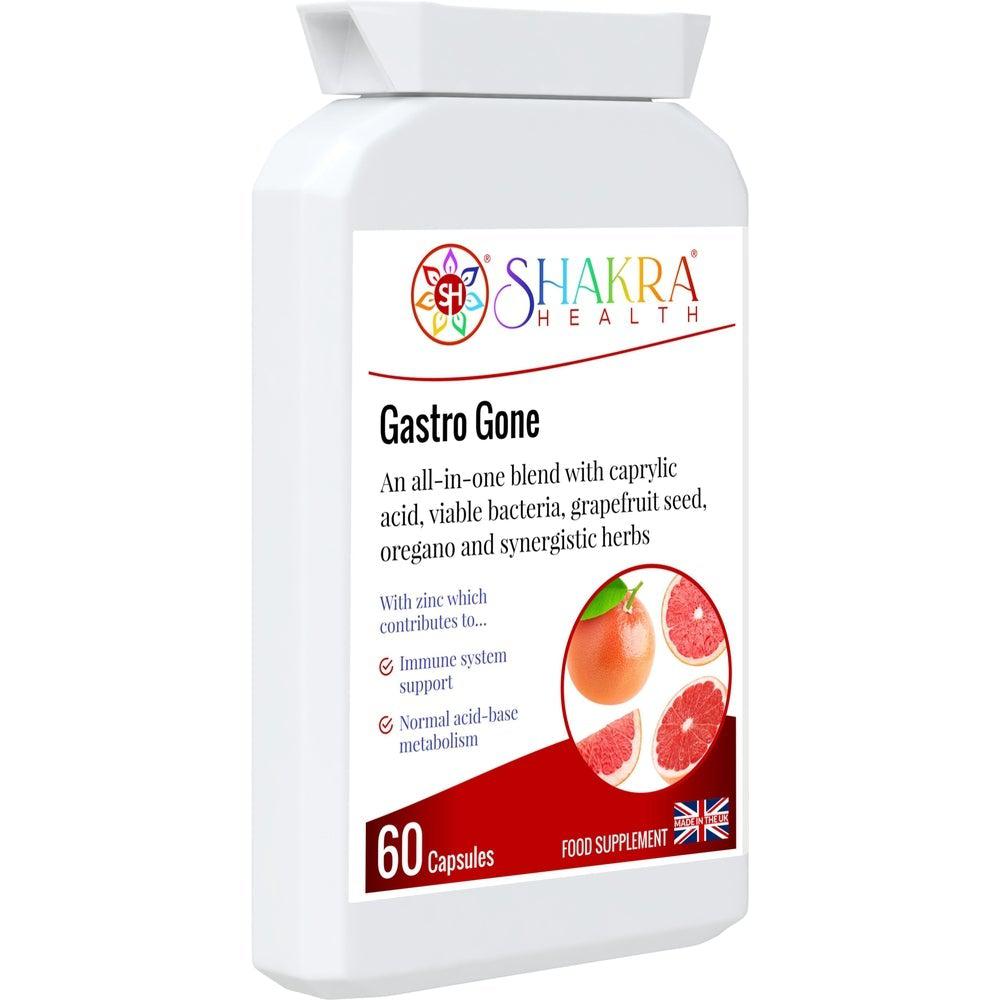
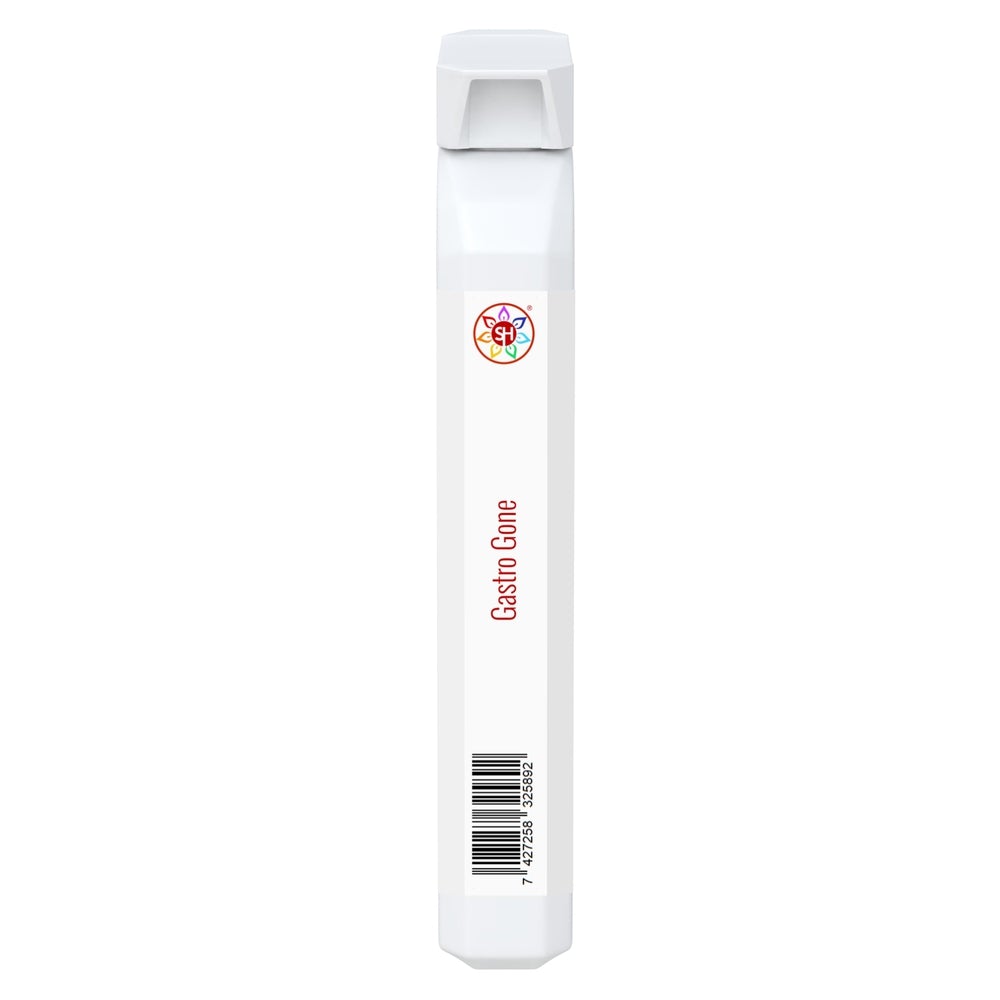
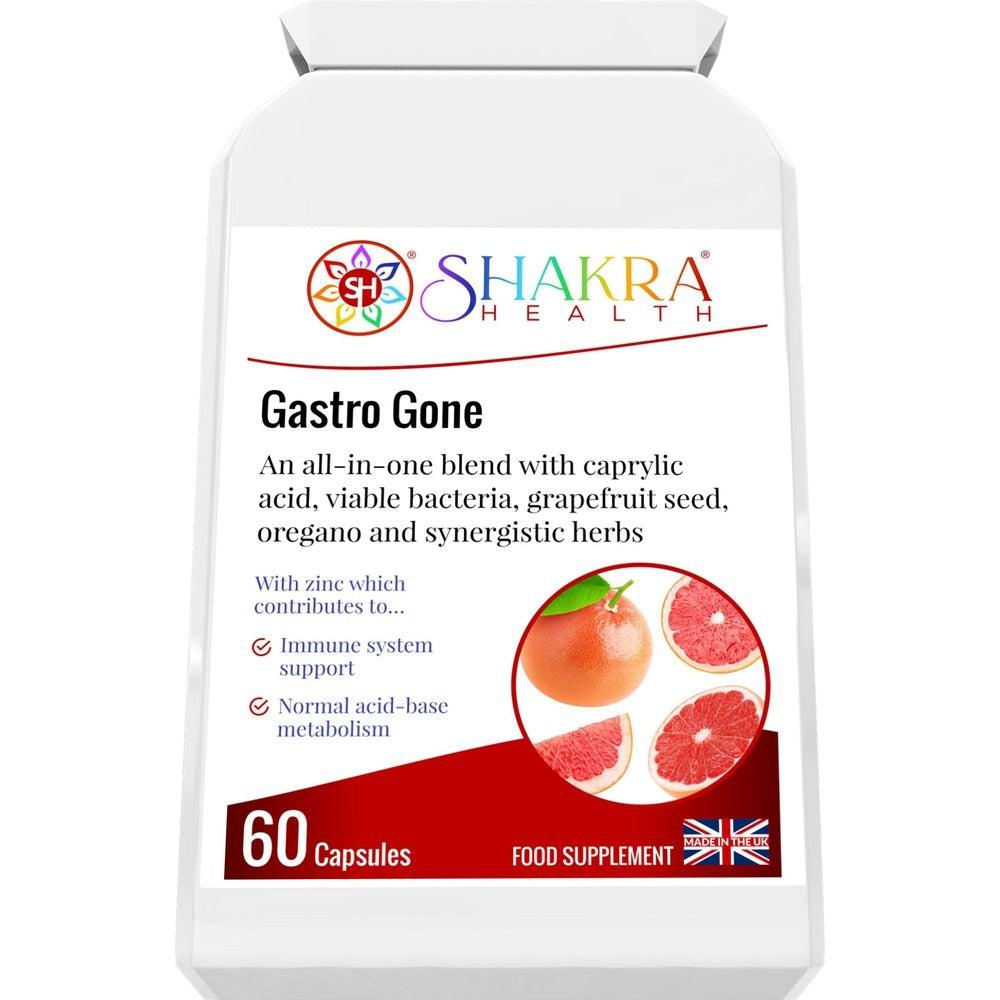

The magic in health and wellness is connecting the physical to the spiritual. Both in the physical and spiritual sense, following, strengthening and taking care of your gut has become a huge priority, and for good reason.
Much like a bad “gut feeling” to your spiritual wellbeing, poor gut health can be devastating to your body’s overall wellbeing. The balance of bacteria in your gut has been linked to so many aspects of overall health including your immunity, weight management, mood, digestion and more.
Spiritually healthy practices like finding meaning and purpose in life, having an intrinsic value system, and belonging to a supportive community with shared values may reduce depressive symptoms. Since stress and mood disorders such as anxiety and depression have such a profound impact on gut health, it stands to reason that engaging in a spiritual practice could have a positive impact on stress-related digestive disorders, too.
Gastro Gone is an all-in-one yeast balance, digestive health, cleanse and detox supplement.
It contains caprylic acid, along with a broad spectrum of active herbals, probiotics and other natural cleansing and protective agents, which have anti-bacterial, anti-fungal, anti-microbial and anti-inflammatory actions.
The unique combination of ingredients in this food supplement helps to support the correct balance of gut flora (bacteria and yeasts), along with the integrity of the gastrointestinal tract and the growth of friendly bacteria.
Ideal for use in conjunction with a low-yeast and low-sugar diet.
Zinc contributes to normal DNA synthesis, normal acid-base metabolism, normal carbohydrate metabolism, normal cognitive function, normal fertility and reproduction, normal macronutrient metabolism, normal metabolism of fatty acids, normal metabolism of vitamin A, normal protein synthesis, the maintenance of normal bones, the maintenance of normal hair, nails and skin, the maintenance of normal testosterone levels in the blood, the maintenance of normal vision, the normal function of the immune system, the protection of cells from oxidative stress and it has a role in the process of cell division.
But what else is inside?...
Caprylic acid: One of the most useful anti-fungal agents, it is a short chain fatty acid that occurs naturally in coconuts and human breast milk and does not adversely affect friendly bacteria in the body. As calcium
magnesium caprylate (the form used in SPOREgone), it survives digestive processes and is able to reach the colon.
Garlic: A natural antibiotic - bacteria do not become resistant to it. Some actions include: antibiotic, anti-bacterial, anti-parasitic, anti-spasmodic, antiseptic and fungicide.
Aloe vera: A bactericidal against staphylococcus aureus, streptococcus viridans and 5 strains of streptococcus mutants. It is also used as an antibiotic, antiviral, demulcent, coagulant and analgesic for mild pain. It helps to eliminate toxic minerals from the body and neutralises free radicals created by toxic substances. It is perhaps best known for its soothing and protective actions (particularly on the digestive system).
Cinnamon: Cinnamon bark has anti-spasmodic, anti-microbial, carminative, anti-parasitic and antiseptic properties. It helps to counteract flatulence and diarrhoea and is often used for poor digestion, vomiting, hyperacidity, to promote secretion of gastric juices, Irritable Bowel Syndrome, colds and flu. It is also useful for suppressing the growth of harmful micro-organisms like Escherichia coli, Staphylococcus aureus and Candida.
Quercetin: A powerful bioflavonoid, closely related to rutin and hesperidin. It is similar to the prescribed anti-allergy drug, cromolyn sodium, which prevents the release of histamines. It also blocks the release of even stronger inflammatory agents called leukotrienes, which are involved in asthma, psoriasis, gout, ulcerative colitis and
reactions to food. These properties make it ideal for people with inflammatory bowel problems and Candida.
Beetroot: An oxygen catalyser, due to the presence of high levels of dietary nitrate, beetroot is also rich in iron and silicic acids. Cellulose fibre in beetroot promotes digestive regularity and bowel cleansing, while its alkaline elements make it an excellent liver, biliary system and gallbladder cleanser.
Lactobacillus acidophilus: A type of friendly bacteria (probiotic) found in the mouth, bowel and vagina. It is involved in the production of the enzyme lactase, required to digest lactose (milk sugar), along with other sugars. It also helps to combat invading pathogens and other harmful micro-organisms associated with food poisoning and infections such as Candida, thrush etc.
Bifidobacterium bifidus: Another beneficial probiotic intestinal bacteria. This strain works in the lower colon.
Clove: A carminative, warming stimulant, powerful antiseptic, anti-neuralgic, anti-histaminic and mild anti-spasmodic. Clove is also often used for digestive problems like flatulence, diarrhoea, dyspepsia and worms.
Grapefruit seed: Grapefruit seed contains high potency phyto-chemicals and is known for its broad-spectrum anti-bacterial and anti-parasitic properties. It supports the digestive system and immune system against infections and is used to treat dysbiosis and help maintain balanced bowel flora.
Thyme: It has anti-microbial, anti-viral, anti-parasitic, anti-spasmodic, anti-fungal, carminative, antioxidant and antiseptic properties. Thyme is also used for infections, wind, irritable bowels, coughs, mouth ulcers and Candida.
Glucosamine HCL: An important nutrient involved in repairing the superficial layers of the gut mucosa (those in contact with intestinal contents). It is essential for all body tissues and is a raw material for connective tissue.
Rosemary: Rosemary is high in antioxidants and contains carnosic acid, rosmarinic acid and camphor. Rosmarinic acid has anti-viral, anti-inflammatory and anti-bacterial actions. Also sweetens the breath.
Oregano: This herb contains a number of active constituents, which are responsible for its anti-microbial and anti-fungal actions (including inhibiting the growth of Candida).